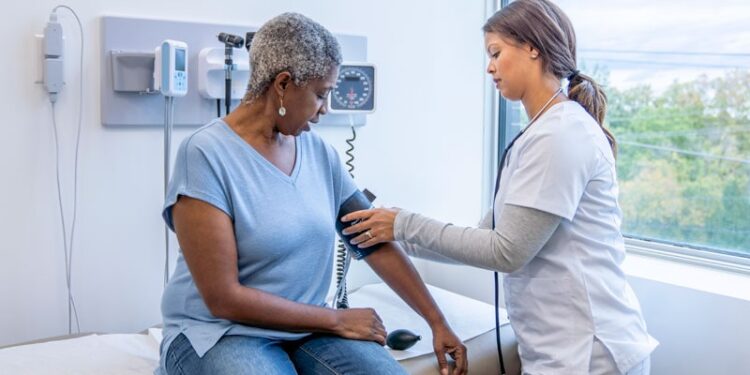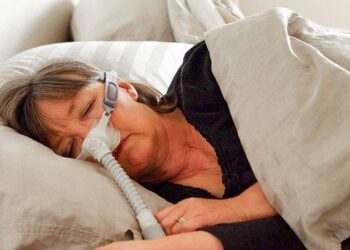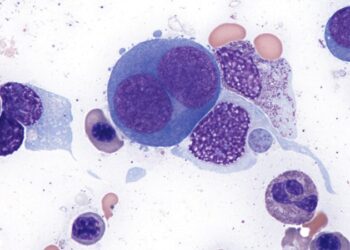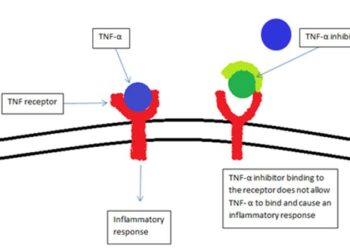A significant risk for stroke was found up to 46 years after delivery in a third of women who’d had any of five adverse pregnancy outcomes, according to a large national cohort study.
An international team of investigators discovered that compared with women who’d had no adverse pregnancy outcomes, those who’d experienced preterm delivery, delivery of an infant small for gestational age, preeclampsia, other hypertensive disorders, or gestational diabetes, still faced a 1.2- to 2.5-fold greater risk for stroke anywhere from 30 to 46 years after delivery.
The results were published in the European Heart Journal.
“Women with adverse pregnancy outcomes need early preventive actions and long-term follow-up to reduce their lifelong risk of stroke,” wrote the investigators led by Casey Crump, MD, PhD, MS, MPH, an epidemiologist in the Departments of Family and Community Medicine and Epidemiology, The University of Texas Health Science Center, Houston.
About a third of all women in their reproductive years experience an adverse pregnancy outcome, according to experts. Meanwhile, stroke is the third leading cause of death worldwide, with women bearing the brunt of the disease.
To determine which adverse pregnancy outcomes are associated with the highest risk for stroke in women, Crump and his co-investigators examined data on 2,201,393 women who gave birth to a singleton between 1973 and 2015 in Sweden.
The cohort was followed up for stroke through 2018. Cox regression was used to determine hazard ratios (HRs) for stroke associated with each of the five adverse outcomes and was adjusted for other maternal factors such as age, BMI, and smoking history.
Crump and colleagues found that in 48 million person-years of follow-up, 667,774 (30%) women experienced an adverse pregnancy outcome and 35,824 (1.6%) women were diagnosed with any form of stroke, including ischemic or hemorrhagic stroke with all its major subtypes such as intracerebral hemorrhage and aneurysmal subarachnoid hemorrhage.
All five adverse pregnancy outcomes were independently associated with long-term increased risks of stroke. With up to 46 years of follow-up, the highest adjusted HR for stroke was associated with gestational diabetes at 1.86 (95% CI, 1.69-2.04).
For hypertensive disorders other than preeclampsia, the HR was 1.82 (95% CI, 1.67-1.98). For preterm delivery it was 1.40 (95% CI, 1.36-1.45) and for preeclampsia, the HR was 1.36 (95% CI, 1.31-1.41). In deliveries with the infant being small for gestational age, the HR was 1.26 (95% CI, 1.22-1.29). All HRs remained significantly elevated (1.2- to 2.5-fold) even 30-46 years after delivery.
The adjusted HRs for associated stroke were highest in the first 10 years after delivery in hypertensive disorders other than preeclampsia, preterm delivery, and small for gestational age. However, the adjusted HRs associated with gestational diabetes, largely mediated by type 2 diabetes, increased with additional follow-up time between 30 and 46 years (2.51; 95% CI 2.15-2.93).
Genetics and common familial factors only partially explained the stroke risks. The investigators conducted co-sibling analyses for potential confounding by shared genetic or environmental factors such as air pollution or passive smoking in 1,191,316 (54%) women in the cohort who had at least one full sister who also had a singleton delivery, regardless of adverse outcome status.
Psychological factors could also be at play in the sustained elevated stroke risk, according to Abbi D. Lane, PhD, an assistant professor of applied exercise science at the University of Michigan School of Kinesiology, Ann Arbor, Michigan, who wrote an editorial accompanying the study.
“Not only does the complicated pregnancy/birth itself cause stress, but the psychological and/or medical sequelae of the adverse pregnancy outcome can last for months or years,” Lane wrote.
Referencing the 2017 INTERSTROKE Study of population level risks for stroke, Lane noted that the population-attributable risk associated in women with psychosocial stress (15.0%; 95% CI 8.5%-25.2%), which was measured using questions about work and home stress, life events, and depression, was similar to that associated with poor diet (22.9%; 95% CI 15.3%-32.7%), cardiac causes (11.1%; 95% CI 9.4%-12.9%), and smoking (5.3%; 95% CI% 3.7%-7.6%).
“Babies born after an adverse pregnancy outcome are more likely to be admitted to the neonatal intensive care unit,” she wrote. “[They] are more likely to have short- or longer- term medical complications and to be diagnosed with neurodevelopmental disorders. Managing medical and neurodevelopmental disorders can lead to months or years of emotional, logistical, and financial strain for parents.”
The INTERSTROKE study’s finding that strokes are 90% preventable, plus this study’s finding that a third of women with adverse pregnancy outcomes have an elevated risk for stroke, requires preemptive action, according to Lane. “Delivery methods for any postpartum intervention could include home-based or virtual sessions to reduce child care or travel burden, and improve feasibility,” she wrote.
Another expert said the study also provides opportunities for treating patients at risk for stroke.
“This study adds to our clinical practice by emphasizing the need to acknowledge sex-specific risk factors and their impact on stroke risk while actively improving their current modifiable risk factors with individualized care,” Lily Dastmalchi, DO, told Medscape Medical News. Dastmalchi is a cardiologist at the Inova Health System in greater Washington, DC.
None of the persons cited in this story had any disclosures to report.
Source link : https://www.medscape.com/viewarticle/stroke-risk-elevated-decades-later-women-adverse-pregnancy-2025a1000h5p?src=rss
Author :
Publish date : 2025-06-26 11:36:00
Copyright for syndicated content belongs to the linked Source.














